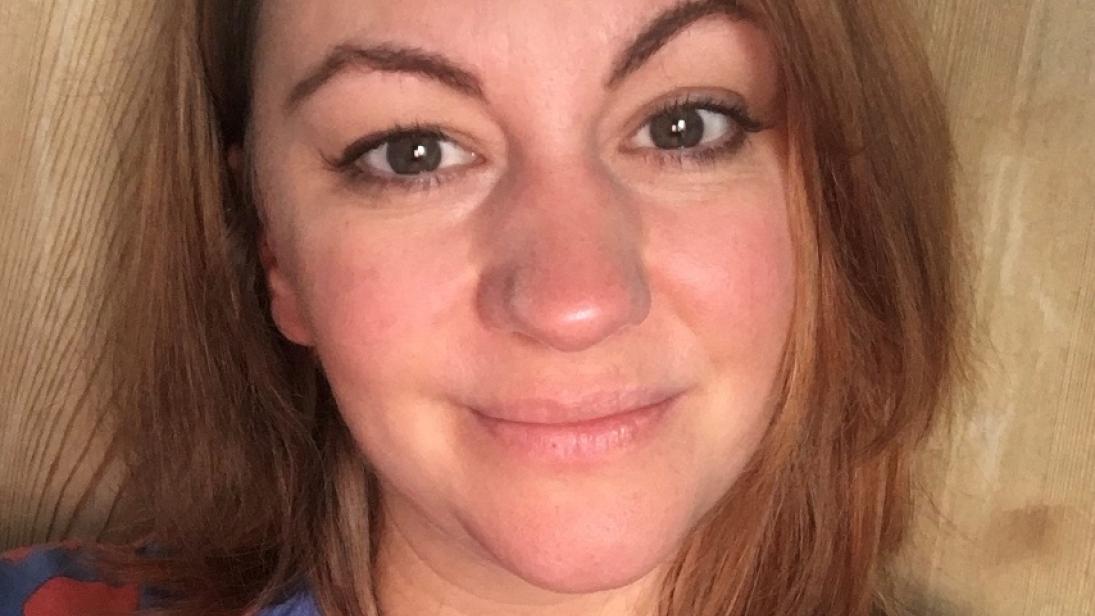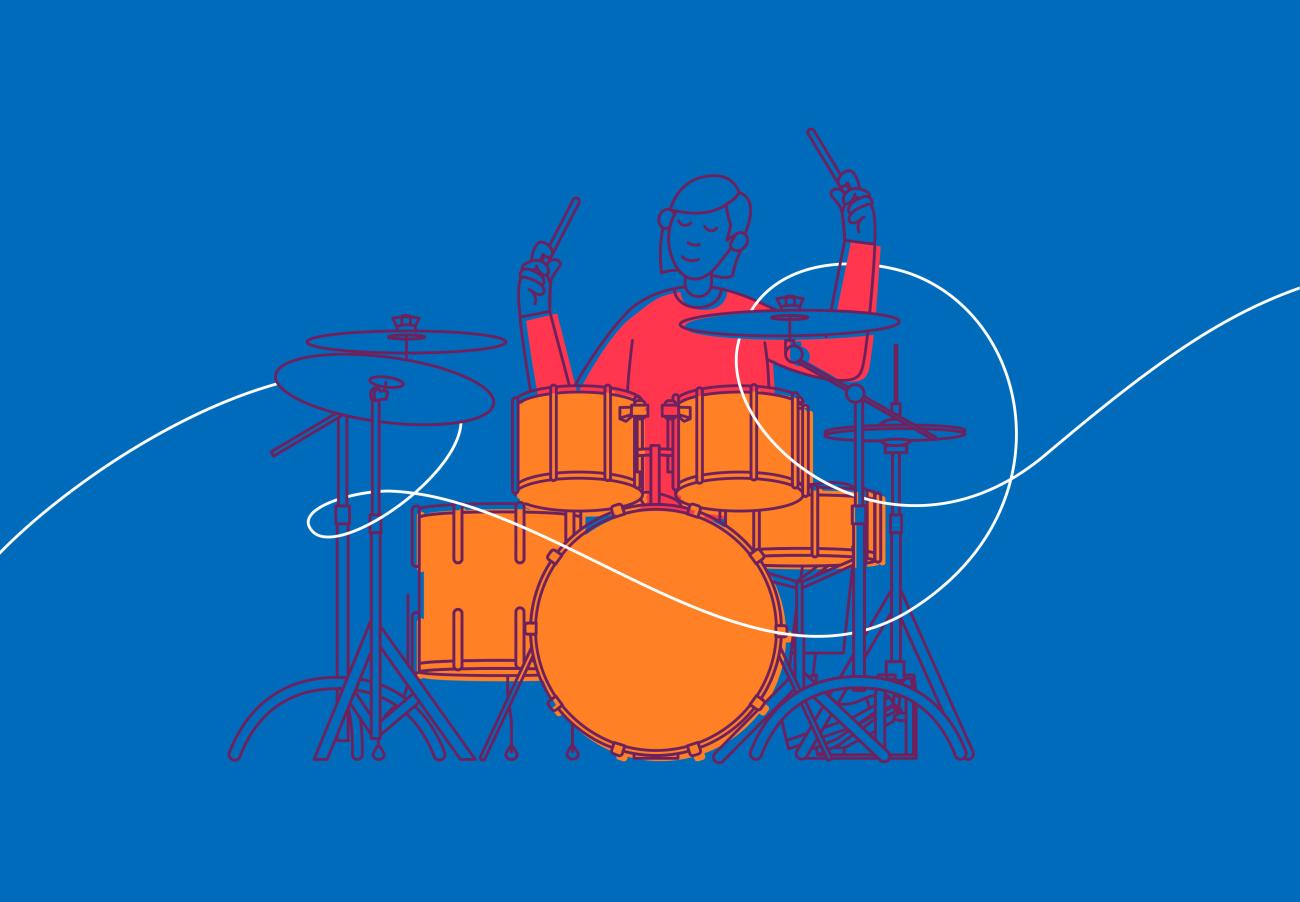Ten questions with our Chief Examiner Group – Kate Andrews

Our five Chief Examiners collectively lead, support and guide our team of examiners as well as contributing to everything we do as a music education organisation. Read on to find out more about Kate.
You can also read conversations with two other Chief Examiners: Zoë Booth and Mark Armstrong.
What do you play and what do you love about it?
My first study is the oboe and I play the cor anglais alongside that. Both get fantastic tunes – especially when a composer wants to express something sad! I play the piano a lot in my work and I love the ease of being able to sit down and play without getting anything out the box and finding out which reed has decided to work that day.
How did you get started with music?
Both my parents were music teachers and it was always an integral part of my world. They were careful not to teach me themselves, though – they were aware of how difficult it can be to tread the parent/teacher line without everyone losing their minds!
I started piano lessons around age four and remember that I had a book with pictures I could colour in, which was very appealing. I was lucky to live in an area that offered free lessons through the local music service and began learning the oboe in a cupboard behind a classroom at the age of nine.
Can you tell us about a memorable teacher?
I’ve had so many teachers who have shaped not only my playing but my whole life view – I’ll just pick out one here. Ian Peak directed the Woodwind Choir at my local Saturday morning music centre – this was the first ensemble I played with and I was blown away by the experience of sitting in the middle of that huge sound. It was an addiction that’s never left me and I’ll always have a soft spot for wind bands.
Ian was fantastic at nurturing young musicians – knowing when to demand more and when to let things go. He was also great at making sure everyone felt included and part of the gang, which was especially valuable to this socially awkward, uncertain young oboist. Ian died unexpectedly in 2017 and I wish I’d had the chance to tell him clearly the impact he had on my course in life.
Is there a piece of music that has particular meaning for you?
Oh, too many to mention. I’ve been so fortunate to perform a huge range of music and hearing a piece I’ve played immediately transports me back to that place or time in my life. Most of all, I remember the people I was with.
Perhaps discovering Poulenc’s Sextet for wind quintet and piano as a teen – my quintet were some of my very best friends and our incessant chatting and joking around just continued through the medium of this vibrant, heady and fantastically orchestrated music.
Apart from examining, what other musical activities or projects are you involved with?
Aside from examining (which I adore), I do a bit of playing here and there and I’m a clinical Music Therapist. I work with people with a wide range of needs and diagnoses; many of them are unable to speak, so music is an accessible shared language, but others are just tired of talking or struggling to find the right words to express themselves.
I worked for a bereavement team within a hospice for much of the pandemic and have a particular passion at the moment for working musically with people who have been bereaved – sharing meaningful music can be a doorway to accessing and sharing memories of the people we have lost.
What motivates your musically?
I’m passionate about music as a force in communities. There needs to be space and support for individuals to excel and we need to nurture our young musicians so they can achieve their best. But musical opportunities should be available to everyone – regardless of age, culture or socioeconomic status.
Making music with other people offers such fantastic (and evidence-based) benefits for our mental health and although we don’t quite know how or why at the moment, we do know that music is unique in the way it’s processed in the brain – it feels magical.
What do you like most about being an examiner?
On a regular day, I might see 30 candidates – 30 people who have chosen to practise, prepare and play, just for me! That’s always going to be a real privilege. I love being able to make the experience as positive as possible for candidates – whether that means helping adjust the music stand or offering another go at a scale in Practical Grade exams, or writing a comment in a way that makes it clear I understand how challenging things can be in Performance Grades.
Can you tell us something about what you’re focusing on in your role as Chief Examiner?
All five of us share the regular work of being a Chief Examiner. Beyond these activities, my focus lies in relationships between ABRSM, our examiners and others, and our provision for candidates with specific needs. We want our exams to be accessible to as many people as possible and I work closely with our brilliant Specific Needs team to drive policy and make changes that allow all our candidates the opportunity to achieve.
What do you enjoy doing when you’re not busy with music?
I lift weights – heavy ones. So much of the change I make in my career is difficult to measure – it often lies in feelings and subtle shifts in people’s behaviour. In the gym, I know things are getting better because I can stack an extra plate on the barbell – it’s a very concrete thing. That’s a powerful force for my mental health and general wellbeing. I also love to cook, see friends and play with my dog.
If you didn’t play the oboe, what instrument would you most like to play and why?
If I’d known how much my career would straddle different musical styles and genres, I would have chosen a brass instrument – maybe the trombone. You can do anything with that – play in orchestras, jazz, wind and brass bands, ska groups…the lot. But I’m only 5’2”, so maybe my arm wouldn’t have been long enough!
